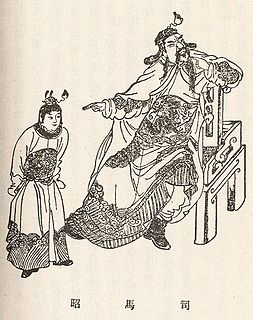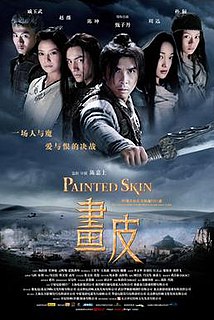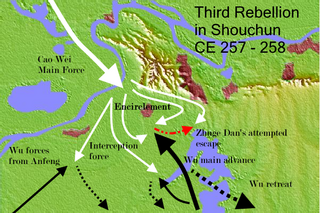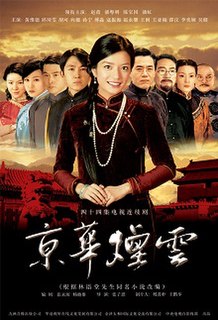International broadcast
| Country or Region | Network | Premiere | Title |
|---|---|---|---|
| Shandong Television | 2007 | 谢谢你曾经爱过我 | |
| Mei Ah TV | 2008 | 謝謝你曾經愛過我 | |
| K18HD-D | 2008 | Thanks for Having Loved Me | |
| True Film Asia | 2011 | ||
| CTS | 2016 | 謝謝你曾經愛過我 | |
| Thank You for Having Loved Me | |
|---|---|
| 谢谢你曾经爱过我 | |
| Created by | Hui-Ling Wang |
| Starring | Zhao Wei Tuo Zonghua Qin Hailu Zhou Yiwei Pan Hong |
| Country of origin | China |
| No. of episodes | 30 |
| Production | |
| Running time | 45 mins per episode |
| Release | |
| Original network | Shandong TV, SMG |
| Original release | July 13, 2007 – August 2007 |
Academy Awards best screenplay nominee Hui-Ling Wang's first television screenplay after Crouching Tiger, Hidden Dragon.
| Country or Region | Network | Premiere | Title |
|---|---|---|---|
| Shandong Television | 2007 | 谢谢你曾经爱过我 | |
| Mei Ah TV | 2008 | 謝謝你曾經愛過我 | |
| K18HD-D | 2008 | Thanks for Having Loved Me | |
| True Film Asia | 2011 | ||
| CTS | 2016 | 謝謝你曾經愛過我 | |
Theme Song:At This Time(Chinese Title:这一次) performed by Zhao Wei

The Warring States period was an era in ancient Chinese history characterized by warfare, as well as bureaucratic and military reforms and consolidation. It followed the Spring and Autumn period and concluded with the Qin wars of conquest that saw the annexation of all other contender states, which ultimately led to the Qin state's victory in 221 BC as the first unified Chinese empire, known as the Qin dynasty.

Zhao was one of the seven major states during the Warring States period of ancient China. It was created from the three-way Partition of Jin, together with Han and Wei, in the 5th century BC. Zhao gained significant strength from the military reforms initiated during King Wuling's reign, but suffered a crushing defeat at the hands of Qin at the Battle of Changping. Its territory included areas now in modern Inner Mongolia, Hebei, Shanxi and Shaanxi provinces. It bordered the Xiongnu, the states of Qin, Wei and Yan. Its capital was Handan, in modern Hebei Province.

Liu Shan (207–271), courtesy name Gongsi, was the second and last emperor of the state of Shu Han during the Three Kingdoms period. As he ascended the throne at the age of 16, Liu Shan was entrusted to the care of the Chancellor Zhuge Liang and Imperial Secretariat Li Yan. His reign of 40 years was the longest of all in the Three Kingdoms era. During Liu Shan's reign, many campaigns were led against the rival state of Cao Wei, primarily by Zhuge Liang and his successor Jiang Wei, but to little avail. Liu Shan eventually surrendered to Wei in 263 after Deng Ai led a surprise attack on the Shu capital Chengdu. He was quickly relocated to Luoyang, capital of Wei, and enfeoffed as "Duke Anle". There he enjoyed his last years peacefully before dying, most probably of natural causes, in 271.

Sima Zhao, courtesy name Zishang, was a Chinese military general, politician, and regent of the state of Cao Wei during the Three Kingdoms period of China.
Zhao Tingting is a Chinese badminton player from Nantong, Jiangsu.
Wei Yili is a former badminton player from China.
Wei Zhao (204–273), courtesy name Hongsi, was an official, historian and scholar of the state of Eastern Wu during the Three Kingdoms period of China. He shared the same personal name as Sima Zhao so, in order to avoid naming taboo, the historian Chen Shou changed Wei Zhao's personal name to "Yao(矅)" when he wrote Wei Zhao's biography in the Sanguozhi.

Zhao Wei, also known as Vicky Zhao or Vicki Zhao, is a Chinese actress, businesswoman, film director, producer and pop singer. She is considered one of the most popular actresses in China and Chinese-speaking regions, and one of the highest paid actresses as well.
Dong Zhao, courtesy name Gongren, was an official of the state of Cao Wei during the Three Kingdoms period of China. He previously served under the warlords Yuan Shao, Zhang Yang and Cao Cao consecutively during the late Eastern Han dynasty.
Chen Tai, courtesy name Xuanbo, was a military general and official of the state of Cao Wei during the Three Kingdoms period of China. He was the son of Chen Qun and a maternal grandson of Xun Yu. Chen Tai was very knowledgeable in the art of war, and so led his men as if they were his own children. When the regent Sima Shi began abusing his power and the emperor Cao Mao died under very suspicious circumstances, Chen Tai expressed his deep loyalty to the Cao Wei state by donning mourning garments at Cao Mao's funeral.
Wen Qin, courtesy name Zhongruo, was a Chinese military general and politician of the state of Cao Wei during the Three Kingdoms period of China. He served as the Inspector of Yang Province during the reign of the third Wei emperor, Cao Fang. In 254, when the Wei regent Sima Shi, who effectively controlled the Wei government, deposed Cao Fang and replaced him with Cao Mao, Wen Qin was deeply displeased because his loyalty was to the Wei emperor and not the Sima family. In the following year, he and another Wei general, Guanqiu Jian, started a rebellion in Shouchun against Sima Shi. However, Sima Shi managed to suppress the rebellion within months; Guanqiu Jian was killed while Wen Qin and his family escaped and defected to Wei's rival state, Eastern Wu. In 257, when another Wei general Zhuge Dan started a rebellion in Shouchun against the Wei regent Sima Zhao, Wen Qin and some Wu forces came to Shouchun to support Zhuge Dan. Sima Zhao led Wei forces to besiege Shouchun and the siege dragged on until early 258. As the situation became more dire, relations between Wen Qin and Zhuge Dan deteriorated, especially since they did not trust each other before. Zhuge Dan eventually had Wen Qin executed. Wen Qin's sons, Wen Yang and Wen Hu, fled from Shouchun and surrendered to Sima Zhao.
Tang Zi was a military general of the state of Eastern Wu during the Three Kingdoms period (220–280) of China. In 258, he defected to Wu's rival state, Cao Wei, and became a general under Wei.

Romance of the Three Kingdoms is a Chinese television series adapted from the classical 14th century novel of the same title by Luo Guanzhong. The series was produced by China Central Television (CCTV) and was first aired on the network in 1994. It spanned a total of 84 episodes, each approximately 45 minutes long. One of the most expensive television series produced at the time, the project was completed over four years and involved over 400,000 cast and crew members, including divisions of the People's Liberation Army from the Beijing, Nanjing and Chengdu military regions. Some of the dialogues spoken by characters were adapted directly from the novel. Extensive battle scenes, such as the battles of Guandu, Red Cliffs and Xiaoting, were also live-acted.
The Postmodern Life of My Aunt is a 2006 Hong Kong serio-comedy film, directed by Ann Hui, starring Siqin Gaowa and Chow Yun-fat. The film also guest-stars Chinese actresses Zhao Wei and Lisa Lu.

The Tianshui revolts refer to the rebellions that broke out in the southern part of Liang Province in the spring of 228 during the Three Kingdoms period of China. Military forces from the state of Shu Han, led by their chancellor-regent Zhuge Liang, planned to seize control of Chang'an, a strategic city in Shu's rival state, Cao Wei. The three commanderies of Nan'an, Tianshui, and Anding were captured by Shu forces, but these territorial gains were later lost after the Battle of Jieting. As mentioned in the biography of the Wei general Zhang He: "The commanderies of Nan'an, Tianshui and Anding rebelled and defected to (Zhuge) Liang, (Zhang) He pacified all of them."

Painted Skin is a 2008 supernatural-fantasy film directed by Gordon Chan, starring Donnie Yen, Chen Kun, Zhou Xun, Zhao Wei, Sun Li and Qi Yuwu. Although the film is based partly on a supernatural premise, it is more of an action-romance than a horror film. Painted Skin is based, very loosely, on "The Painted Skin", a short story from the collection Strange Stories from a Chinese Studio. The theme song of the film, Huà Xīn, was performed by Jane Zhang.

Zhuge Dan's Rebellion, or the Third Rebellion in Shouchun, was a revolt led by Zhuge Dan, a general from the state of Cao Wei, against the regent Sima Zhao. Zhuge Dan received some support from Eastern Wu, Cao Wei's rival state. It was the third and final of a series of three rebellions that took place in Shouchun in the 250s during the Three Kingdoms period of China.

Moment in Peking is a 2005 Chinese television series produced by CCTV. It is adapted from the novel Moment in Peking by Lin Yutang, who was nominated for a Nobel Prize in 1940 and 1950.

So Young is a 2013 Chinese drama film directed by Zhao Wei. It is based on the best-selling novel of the same name To Our Youth that is Fading Away by Xin Yiwu. The film is Zhao's directorial debut.
Wei Junxing is a former Chinese politician who spent most of his career in Liaoning province in northeast China. In January 2015, Wei was put under investigation by the Communist Party of China's anti-corruption agency. Previously he served as Deputy Secretary-general of Liaoning provincial government and the Party Secretary of Kaiyuan, and briefly as Mayor of Jinzhou.